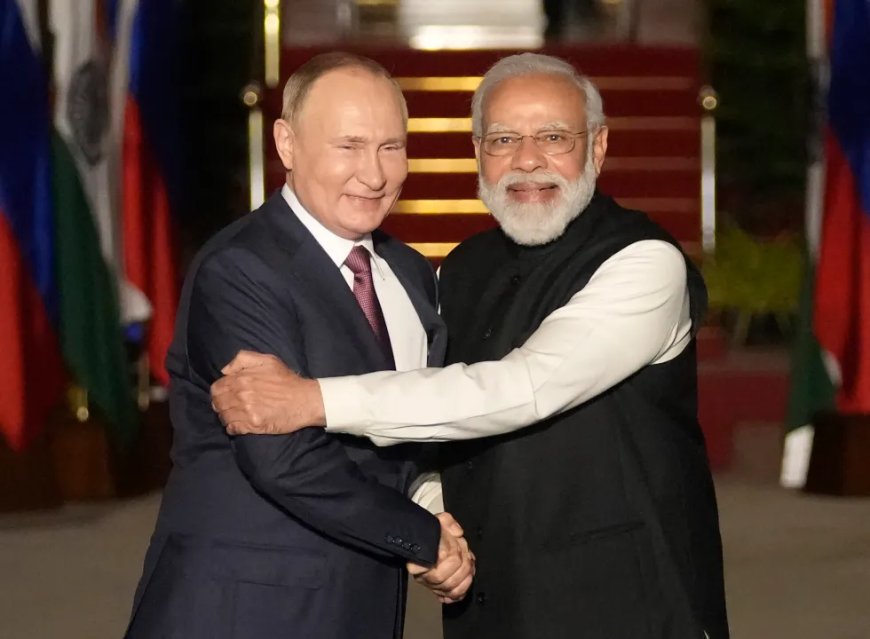Cracks in the Amour: India’s Subtle Shift Away from Russian Defense Dependence

Cracks in the Amour: India’s Subtle Shift Away from Russian Defense Dependence
India and Russia have long been recognized as two key partners in one of the most prominent strategic alliances on the global stage. Rooted in the Cold War era, this relationship has traditionally rested on cooperation in defense, energy, and technology, gradually evolving into a multifaceted partnership. Given this historical context, the ties between New Delhi and Moscow have witnessed sustained development.
Since India’s declaration of independence in 1947, the two nations have established and maintained robust political and trade relations. Beyond the political sphere, their collaboration has spanned areas such as arms trade, oil, machinery, electronic equipment, pharmaceuticals, nuclear reactors, and more—culminating in a long-term strategic partnership, particularly in defense and technology.
This long-standing strategic partnership, especially in the defense sector, has made India significantly dependent on Russia. In fact, for decades, approximately 60 to 70 percent of India’s military hardware has originated from Russia, creating a traditional reliance. As India’s Defense Minister Rajnath Singh once remarked, New Delhi views Moscow as a trusted and time-tested partner in the defense domain.
However, recent developments in the global arena—as well as in bilateral relations—have brought notable changes, particularly in the realm of arms production. For years, India has been among the foremost buyers of Russian military systems, most notably the S-400 missile defense system. This reliance on Russian military technology has also paved the way for broader joint ventures, such as the BrahMos missile program, the production of fifth-generation Sukhoi fighter jets, battle tanks, submarines, and multi-role transport aircraft—all based on Russian technology, but developed on Indian soil.
On the other hand, in recent years—especially following the outbreak of the Ukraine conflict and the imposition of Western sanctions against Russia—the future of India-Russia relations has grown more complex, with third-party influences increasingly shaping bilateral dynamics. One telling sign has been India’s efforts to reduce its dependence on Moscow. In recent months, India’s Ministry of Defense has invited European, particularly German, companies for defense negotiations. One outcome of these talks was a major contract awarded to the German company Thyssenkrupp to build six submarines for the Indian Navy. Sources familiar with the negotiations estimate the deal’s value at around 5 billion euros, with potential to rise to 8 billion.
Despite these shifts, many experts maintain that Russia continues to play a central role in India’s defense procurement. For Prime Minister Modi’s government, Moscow remains a core strategic partner. Yet, signs of a gradual Indian pivot toward defense self-reliance are emerging. According to defense import data, Russian arms accounted for 36% of India’s imports from 2019 to 2023—a significant drop from 55% between 2015 and 2019, and even further down from 72% during 2010 to 2014.
This trend clearly indicates India’s attempt to reduce its traditional dependence on Russia. In parallel, New Delhi is working to diversify its arms procurement sources and promote its “Made in India” defense manufacturing initiative—drawing inspiration from nations like Iran that have pursued independent arms development. India’s broader strategy includes forging agreements with Western countries, including those in Europe, the U.S., and even China, to counterbalance its reliance on a single supplier and secure a diversified defense supply chain.
In conclusion, the future of India-Russia relations remains an open question. As global dynamics shift, the once-straightforward strategic partnership has become increasingly complex and multifaceted. Western sanctions have strained Russia’s strategic posture and, by extension, its relations with India.
In response, India seeks to strike a balance—preserving its historic ties with Moscow while expanding cooperation with other powers. Over time, through small and consistent steps, India is expected to steadily reduce its traditional dependence on Russian defense imports, while bolstering domestic production capabilities.
Translator: Ashraf Hemmati













































